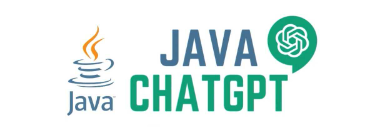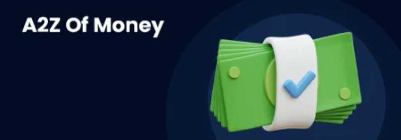Stockbrokers can ask you to submit income tax returns (ITR) to check PMLA violation; may lead to jail up to 7 years if guilty
While your income tax returns (ITRs) are not usually asked by stockbrokers during account opening process, they may ask it in certain circumstances. Securities Exchange Board of India (SEBI) has asked stockbrokers to verify their customer's trades and make sure that there is no money laundering.ET Year-end Special Reads
How India's political landscape changed after assembly polls in eight states
Trent, Zomato among 33 biggest wealth creators this year. What will make money in 2025?
Telcos investment recovery in limbo, price war with satcom services likely in 2025
Asking for ITR copy is one of the ways to verify whether a person has the means to execute the trades and is not laundering money for someone else. For example: a person with Rs 6 lakh annual salary is taking Rs 50 lakh exposure in Bank Nifty monthly expiry option, this entire trade is a huge red flag hence it needs to be investigated.Do all stockbrokers ask for a copy of ITR at the time of account opening?
Experts said, every stockbroker will ask for a copy of ITR if anybody is opening a derivative (future and options) and commodity account."Stockbrokers need to collect proof of income declared at the time of account opening if a customer is opening an account in the commodities and derivatives (F&O) segment.For equity segment there is no requirement of any proof a simple declaration of income level will do," says Shrey Jain, founder & CEO, SAS Online, a discount broker.
Tejas Khoday, Co-founder & CEO, FYERS explains why stockbrokers do this. "Traders entering the derivatives segment must provide proof of income-such as bank statements, net worth certificates, holding statements, or ITR copies-during account opening or segment activation. This process ensures compliance with SEBI's guidelines and evaluates financial stability at the start."
Do stockbrokers ask for ITR copy if you trade actively in the stock market?
According to Khoday, stockbrokers typically do not repeatedly request ITRs solely to verify funding sources. "Instead, surveillance systems monitor trading activity for unusual patterns that may indicate the use of borrowed funds," he says."Generally, brokers don't ask for ITRs once an account is active. However, exceptions exist. For instance, if there's any unusual activity in the client's account or a potential mismatch between declared income and trading volumes, brokers may request an update to the client's declared income range. This ensures compliance and effective risk management while aligning trading activity with the client's financial profile," says Khoday.
Since the question is of using borrowed funds for stock market trading, lawyers say we need to analyse this based on what SEBI and RBI said. The term 'borrowed funds' has a deeper meaning.
SEBI
Anil K. Rawal, Advisor, HSA Advocates says: "SEBI regulations do not explicitly prohibit consumers from trading in Futures and Options (F&O) using borrowed money. However, SEBI has implemented stringent measures to ensure transparency, responsible trading, and adherence to Anti-Money Laundering (AML) norms under PMLA, 2002. The primary goal is to prevent the misuse of borrowed funds or undisclosed income for illegitimate purposes, such as market manipulation, money laundering, or tax evasion. While trading with borrowed funds is not inherently illegal, such activity must be declared, and the sources of funds must be legitimate to comply with regulatory requirements."
RBI
Sanjay Israni, Partner at Desai & Diwanji, says, "RBI's regulations are more focused on banking and lending activities. There are no direct prohibitions on using borrowed money for F&O trading, but RBI does regulate how banks and NBFCs can lend money. RBI's regulations come into play when the borrowed money comes from banking channels. Under Section 20 of the Banking Regulation Act, banks cannot lend money specifically for speculative purposes, including F&O trading."
According to Gaurav Garg, Research Analyst, Lemonn, a stockbroker "ITR requests are likely in following scenario:
- If a client is trading heavily in F&O, commodities, or currency derivatives.
- Accounts with substantial leverage or consistently high exposure in trades.
- During internal or external audits, brokers may review financial standing and ask for ITRs.
- If the client seeks increased exposure, trading limits, or credit, the broker might ask for updated financial documents."
Stock brokers monitor accounts to make sure money laundering activities are not conducted
Vivek Iyer, Partner, Grant Thornton Bharat, says when the transaction amount exceeds the income details as per the ITR of the trading and demat account holder, it basically refers to them trading beyond their risk appetite. "Risk appetite is a function of a client's ability and willingness to take risks. A lower income than the transaction amount reflects lower ability to take risk and hence a lower risk appetite. This is an Anti-Money Laundering (AML) scenario that the brokers must be monitoring for customers and hence the broker mentioned the same."SEBI wants to make sure stock market trading activities match the declared source of funds
While SEBI has not mandated collection of ITRs of customers by stockbrokers, the regulator has asked brokers to verify the trades of the customers for potential money laundering activities.Israni from Desai & Diwanji says every stockbroker has an internal alert system which automatically flags trades which are larger than your declared income. ITR is one way to verify these trades. Israni says: "SEBI wants to ensure that:
- The money being used for trading is legitimate.
- Traders aren't taking risks beyond their financial capacity.
- The trading activity matches the declared source of funds."
Khoday from FYERS, a stockbroker says, "We've also implemented a trade surveillance system that monitors unusual activity, triggers alerts, and ensures data is ready for exchanges and regulators, promoting compliance and transparency."
Jain from SAS Online, a stockbroker, says, "If the transaction amount exceeds the income details as per ITR shared at the time of account opening, brokers get an alert."
According to Armin Pardiwala, Partner, HSA Advocates says: "A stock-broker or a sub-stock broker has to do a due diligence (KYC) before inducting a client to trade in F&O segment and such due diligence shall include the documentary evidence as to financial position of the client, beneficial ownership of the client and in case of any change in such financial details, the stock-broker or sub-stock broker shall ask the client to furnish the revised financial details."
What can happen if you are found guilty?
According to Pardiwala, As per Section 3 of Prevention of Money-Laundering Act, 2002 ("PMLA Act"), a person directly or indirectly attempts to indulge or knowingly is a party or is involved in any process connected with the proceeds of crime including its concealment, possession, acquisition or use and projecting or claiming it as untainted property, shall be guilty of offence of money laundering. Thus, such an offence of money-laundering is punishable with rigorous imprisonment for a term which shall not be less than 3 years, but which may extend to 7 years and shall also be liable to a fine.Israni from Desai & Diwanji says: "Under Income Tax Act, 1961, Section 271(1)(c) (Failure to furnish returns, comply with notices, concealment of income) deals with concealment of income. The penalty can be up to 300% of the tax amount evaded. Section 276C (Wilful attempt to evade Tax) provides for prosecution in cases of willful tax evasion, which can lead to imprisonment."
Pardiwala from HSA Advocates says: "As per Section 3 of Prevention of Money-Laundering Act, 2002 (“PMLA Act”), a person directly or indirectly attempts to indulge or knowingly is a party or is involved in any process connected with the proceeds of crime including its concealment, possession, acquisition or use and projecting or claiming it as untainted property, shall be guilty of offence of money laundering. Thus, such offence of money-laundering is punishable with rigorous imprisonment for a term which shall not be less than 3 (Three) years but which may extend to 7 (Seven) years and shall also be liable to fine.
Additionally, every reporting entity shall take additional steps to examine the ownership and financial position (including sources of funds) of the client, in such manner as may be prescribed under PMLA Act. Thus, if the Director (as appointed by the Central Government), in the course of any inquiry, finds that a reporting entity has failed to comply with the obligations under the PMLA Act, may by an order, impose a monetary penalty on such reporting entity which shall not be less than Ten Thousand Rupees but may extend to One Lakh Rupees for each failure.
Please note that the reporting entity shall mean banking company, financial institution, intermediary or a person carrying on a designated business or profession as defined under Section 2(wa) of the PMLA Act."
This story originally appeared on: India Times - Author:Faqs of Insurances




























































